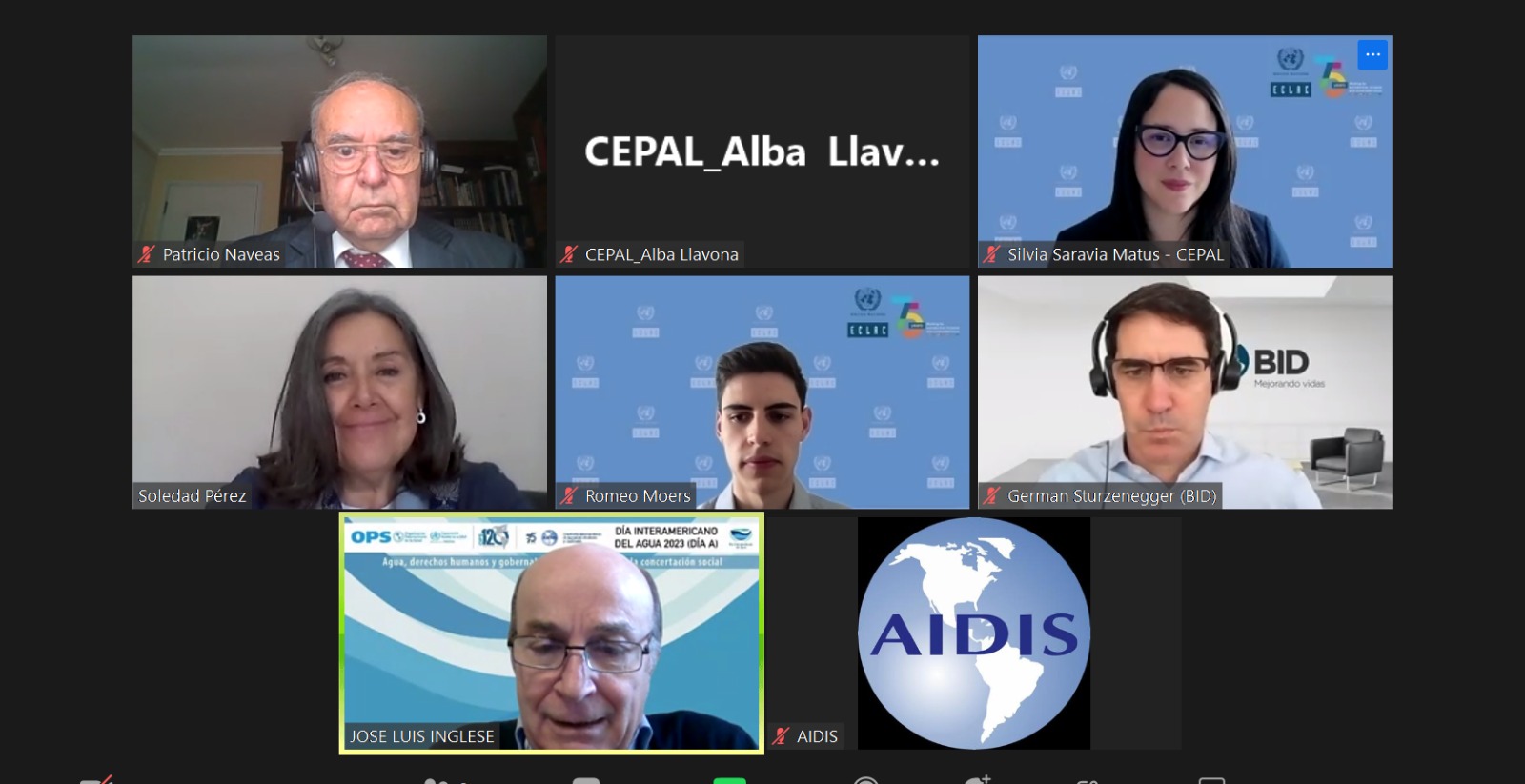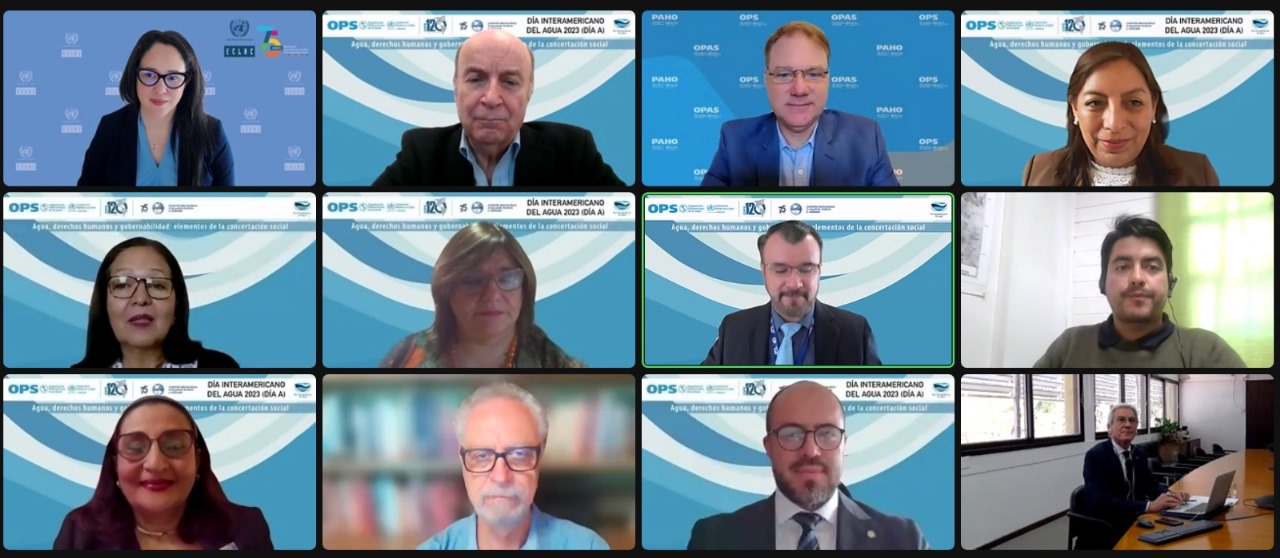AIDIS/ECLAC/IDB Workshop: Rural Sanitation Sector in Latin America and the Caribbean - Vision of International Cooperation
Work area(s)
Topic(s)
Teaser
The workshop "Rural Sanitation Sector in Latin America and the Caribbean - Vision of International Cooperation," organized by the Division of Rural Drinking Water and Sanitation (DISAR) of the Inter-American Association of Sanitary and Environmental Engineering (AIDIS), took place on Wednesday, October 18, 2023. This workshop brought together ECLAC and the Inter-American Development Bank (IDB) to explore the challenges and opportunities related to the provision of clean water and sanitation in rural areas of Latin America and the Caribbean (LAC).
Event information

Date
18 Oct 2023 - 07:15Event type
Significant challenges exist in accessing clean water and sanitation in rural areas of Latin America and the Caribbean, encompassing key areas such as expanding service coverage, institutional effectiveness, availability of financing, long-term sustainability, and relevant regulation. These challenges have been exacerbated by climate change and the growing water crisis, making it even more urgent to seek effective solutions to ensure access to safe water in rural communities.
The workshop began with introductory remarks by Engineer Soledad Pérez, Director of Inter-American DISAR, and Engineer José Luis Inglese, President of Inter-American AIDIS, who provided the current context of the rural water situation in the region and welcomed the subsequent presentations.
The first presentation of the workshop, titled "Models of Water and Sanitation Management in Rural Areas of Latin America and the Caribbean: Governance and Investment Proposals," was conducted by Dr. Silvia L. Saravia Matus, Officer for Economic Affairs in charge of Water Affairs at ECLAC. During her presentation, she emphasized that, despite advances in water and sanitation coverage across the region, rural areas significantly lag behind urban areas. Only 53% of the rural population in the region has access to safely managed water services, and this access has grown slowly compared to urban areas. She also highlighted the importance of increasing investments in rural regions, improving governance and regulation, and developing more circular approaches to water management. In summary, her presentation offered a comprehensive analysis of the challenges and inequalities in the provision of water and sanitation in rural areas, as well as providing recommendations for effectively addressing these issues.
The second session, titled "Water and Sanitation in Rural Areas of Latin America and the Caribbean: The Challenge of Sustainability," was led by Mr. Germán Sturzenegger, Senior Specialist in Water and Sanitation at the IDB. During his presentation, he emphasized the challenges in the rural sector regarding investment, highlighting key aspects to be considered when making an investment proposal. This was accompanied by suggestions for addressing these challenges and promoting development in the sector.
The event concluded with a closing session led by the Director of DISAR, summarizing the key aspects discussed throughout the event and highlighting the importance of international cooperation in finding effective solutions to the challenges of providing clean water and sanitation in rural areas.
Related content

ECLAC Participates in the Seminar: DIAA 2023 by AIDIS, Steering Towards Sustainable Water Governance
The DIAA 2023 seminar on October 6, 2023, orchestrated by the Inter-American Association of Sanitary and Environmental Engineering (AIDIS), explored the intersection of water governance, human rights…
Organizing institution
Asociación Interamericana de Ingenieria Sanitaria y Ambiental
- http://www.aidisnet.org
- telephone